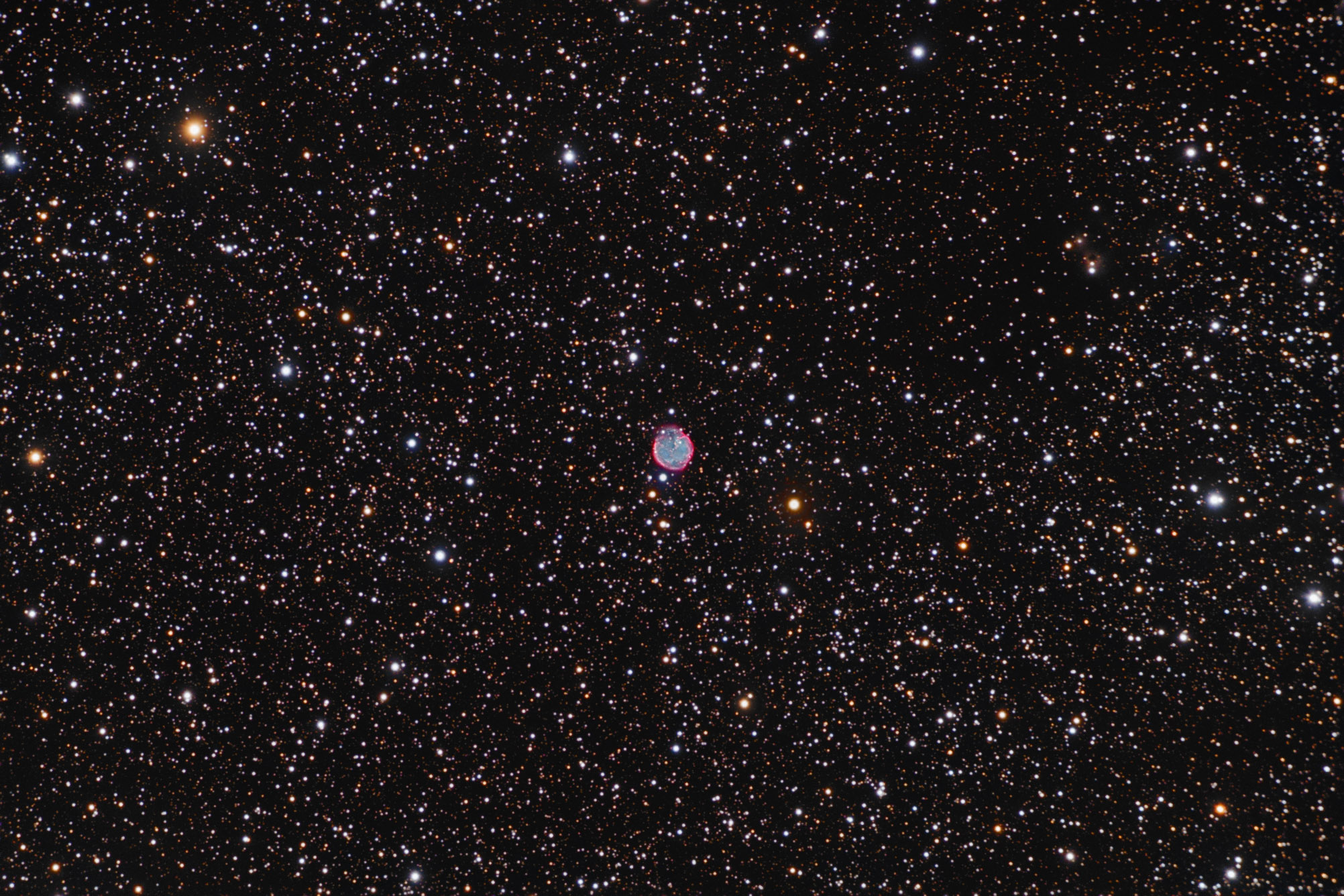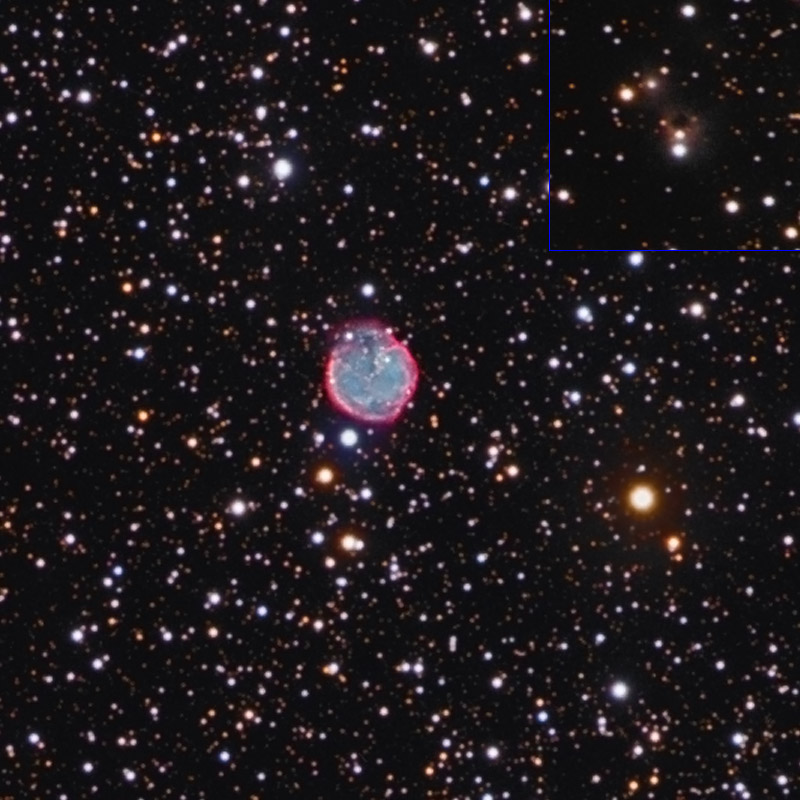| Description | Images |
Object name: NGC7048Designation(s): NGC7048, NGC 7048 is a rather nice planetary nebula in Cygnus about half way between M39 and the North American Nebula that I've managed to avoid imaging until late September 2011. I find several distance estimates for it indicating how hard it is to determine the distances to these objects. The closest puts it at 1900 light-years away. The most distant says 8800 light-years while the newest I could find (2004) says 4900 light-years. Flip your three sided coin for the answer. The stars seen against the nebula are all foreground or background stars except for the faint blue central star whose UV light is causing the gasses, expelled a few thousand years ago by the dying star, to glow. It has a surprising amount of detail in it that, thanks to better than normal seeing, I was able to bring out. In fact, seeing was so good I should have imaged it at 0.5" per pixel instead of my standard 1" per pixel but since I was sound asleep while the computer took the data I didn't realize how good the seeing had become as the night progressed. Related Designation(s):87GB 211226.7+460443, 87GB[BWE91] 2112+4604, IRAS 21124+4604, NGC 7048, NGC7048, NVSS J211415+461716, P-K 088-01 1, PN G088.7-01.6, RX J2114.2+4618, WSRTGP 2112+4604, [MGD2014] 2112.4+4604, |

